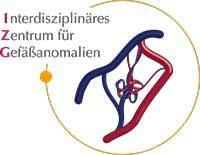Liver Cancer — Embolization or Chemoembolization: treatment in the Best Hospitals of Germany
Treatment prices are regulated by national law of the corresponding countries, but can also include additional hospital coefficients. In order to receive the individual cost calculation, please send us the request and medical records.

Department of Interventional Radiology
The Department of Interventional Radiology offers the full range of imaging examinations, as well as innovative image-guided minimally invasive techniques for the treatment of tumors, vascular diseases and internal pathologies (for example, CT, MRI, PET-CT, SPECT). The department's doctors have deep knowledge and colossal experience in the field of interventional radiological methods of treatment, which represent an excellent alternative to open surgical interventions. Despite the high level of technical equipment and the presence of advanced computerized systems, the focus is always on the person with his individual needs. Compliance with current clinical protocols and high professionalism of the department's specialists contribute to the successful clinical practice, as well as the reputability of the department among the best medical facilities of this kind in Germany.




Department of Interventional Radiology and Neuroradiology
The Department of Interventional Radiology and Neuroradiology offers a full range of advanced imaging diagnostics and minimally invasive treatments on both an inpatient and outpatient basis. The department has state-of-the-art medical equipment for imaging tests such as X-ray, computed tomography, magnetic resonance imaging, digital subtraction angiography, and mammography. The medical facility also performs many highly effective interventional therapeutic procedures under image guidance, which in many cases allow patients to avoid traumatic open surgery. For example, the department successfully performs local fibrinolysis, thrombectomy, percutaneous transluminal angioplasty, hemostasis, transarterial chemoembolization, uterine artery embolization, and other procedures. The department's neuroradiologists specialize in brain and spinal cord imaging and the treatment of central nervous system disorders. Interventional neuroradiology focuses on the treatment of carotid artery stenosis, brain aneurysms, arteriovenous malformations, dural fistulas, subdural hematomas, brain tumors, skull base and spinal tumors, and chronic back pain. The department's medical team has extensive clinical experience in their areas of expertise. The specialists are guided by the recommendations of the German Society for Interventional Radiology and Minimally Invasive Therapy (DeGIR) and the German Society for Neuroradiology (DGNR), which helps to achieve the best results.






Department of Adult and Pediatric Diagnostic, Interventional Radiology, Neuroradiology
The Department of Adult and Pediatric Diagnostic, Interventional Radiology, Neuroradiology is one of the best institutions of its kind in Germany and offers patients the full range of radiological studies and imaging-guided minimally invasive therapy. The department’s scope of tasks also includes imaging diagnostics in children of all age groups, detection and invasive treatment of cerebral vascular pathology (neuroradiology). Patient care is provided both on an inpatient and outpatient basis.






Liver cancer is an aggressive and frequently occurring oncology. More than 900,000 new cases are registered in the world every year, making it the fifth most common form of cancer. In most cases, the tumor is detected at an unresectable stage. In such cases, a minimally invasive endovascular procedure called chemoembolization can increase the survival rate of patients.
Content
- What is chemoembolization?
- When can chemoembolization be used?
- How does chemoembolization work for liver cancer treatment?
- What is the process of treatment?
- Treatment effectiveness
- Where can I undergo treatment?
What is chemoembolization?
Systemic chemotherapy has low effectiveness for liver cancer because these tumors have multiple drug resistances.
A much more effective procedure is regional chemotherapy, in which drugs are delivered directly into the artery supplying the tumor. One form of regional chemotherapy is chemoembolization. This is a procedure that blocks arteries with emboli containing chemotherapy drugs.
This method has the following advantages:
- Dual mechanism of action: embolization (depriving the tumor of blood supply) combined with regional chemotherapy
- The concentration of chemotherapy drugs in the tumor is much higher compared to systemic therapy
- Low systemic toxicity of treatment
- Minimal trauma rates
Research has proven the effectiveness of percutaneous embolization, so chemoembolization has long ceased to be an experimental procedure. It is a standard treatment option that most medical societies have approved and recommended.
When can chemoembolization be used?
Radical surgery is considered the best option for treating liver cancer. Depending on the size and location of the tumor, this can be a unilateral hepatectomy, wedge liver resection, atypical marginal resection, or extensive liver resection.
Unfortunately, only a few patients are candidates for radical (potentially curable) surgical treatment. Liver cancer is more often diagnosed in its advanced stages. In addition, this disease mainly develops due to viral hepatitis and cirrhosis, which makes it impossible to remove a significant part of the organ due to low functional reserve.
Most patients with primary liver cancer are therefore not candidates for surgical treatment, even when diagnosed for the first time. Moreover, the tumor may recur after surgery in some patients, and repeated surgical treatment is usually not performed.
Therefore, tumor node ablation (destruction by radiofrequency or microwave energy) and chemoembolization have become the main treatment methods for most patients. These two procedures may be combined because multiple tumor nodules are often located in the liver.
Optimal candidates for chemoembolization are patients with unresectable tumors that are well supplied with blood (based on angiography findings) and inaccessible to ablation. The reason for refusing ablation may be the proximity to large blood vessels and bile ducts, as well as the large size of the tumors.
Chemoembolization is used to increase the patient's life expectancy. It is also used as a "bridge to transplant surgery", during the waiting period for a donor organ.
How does chemoembolization work for liver cancer treatment?
The liver has a dual blood supply. Most of the normal parenchyma receives its nutrition from the portal vein system. At the same time, the tumor is supplied with blood primarily from the hepatic artery. This type of blood supply creates ideal conditions for embolization. Doctors can occlude the blood vessels supplying the tumor and destroy the neoplasm without any significant damage to the liver parenchyma.
Chemoembolization works through the following several mechanisms:
- Ischemic necrosis is the death of tumor tissue deprived of blood supply
- Regional chemotherapy is the damage to cancer cells caused by high doses of chemotherapy drugs
- Immune stimulation occurs after tumor decay when a large number of tumor antigens are released into the bloodstream, which contributes to the formation of an antitumor immune response
What is the process of treatment?
Treatment with embolization or chemoembolization is minimally traumatic. It does not require a long hospital stay or rehabilitation. The procedure is performed without general anesthesia. The standard method of anesthesia is local anesthesia in combination with intravenous sedation.
Chemoembolization is performed in the Department of Interventional Radiology. Under X-ray guidance, doctors use a 1 mm microcatheter to reach the arteries supplying the liver and inject a contrast agent to approach the blood supply of the tumor. Subsequently, the blood vessels supplying the tumor are blocked with emboli. Drug-saturated microspheres of various diameters are mainly used in developed countries. These have a number of benefits over the hepatic oily chemoembolization used in the 20th century. These are the following:
- Reliable and irreversible obstruction of the arteries supplying the tumor
- Prolonged and uniform release of cytostatics that destroy cancer cells
- More expressed cytoreductive response (tumor shrinks more)
- Fewer side effects and better tolerability of the procedure
- Shorter hospitalization time
Doxorubicin is mainly used as a drug to destroy cancer cells, and less commonly, this may be anthracycline. There are many other drugs, for example, irinotecan, which can be included in the composition of microspheres, but they are mainly used for liver metastases from cancer of other localizations, most commonly colorectal cancer.
To prevent emboli from entering non-target blood vessels, coiling spirals are sometimes used to protect them. This allows doctors to reduce the risk of blockage of arteries in other organs.
Upon the completion of the procedure, a follow-up angiography is performed to check if the procedure was successful. If there is still blood flow in the tumor, doctors may use additional embolization particles to finally close the blood vessels.
Treatment effectiveness
Chemoembolization cannot cure liver cancer, but it can increase the duration and quality of life and reduce the risk of complications.
The effectiveness of the procedure for primary liver cancer was proven by two large trials in 2002, and since then it has become a standard procedure in most developed countries.
One of the recent studies showed that the use of microspheres with doxorubicin resulted in a one-year survival rate in 77.2% and a two-year survival rate in 64.6% of cases. Moreover, the additional use of sorafenib after the chemoembolization procedure improved these rates. They were 96.2% and 82.7%, respectively.
Other studies have also demonstrated the benefits of chemoembolization and ablation compared to chemoembolization alone. Therefore, liver cancer treatment in Germany is often performed using both procedures.
Where can I undergo treatment?
You can undergo your treatment in Germany. There are a few reasons for you to use the services of doctors at German clinics. These are as follows:
- Accurate liver cancer diagnostics
- Personalized medicine
- Superselective chemoembolization with minimal risks of damage to healthy liver parenchyma and bile ducts
- Protection of non-target blood vessels with coils to reduce the risk of complications
- Successful combination of the procedure with ablation, irradiation, or systemic therapy
You are welcome to use the Booking Health service to make an appointment for your diagnostics and liver cancer chemoembolization in Germany. On our website, you can find the best hospitals for liver cancer treatment and current prices. When you make your treatment appointment through Booking Health, you save money because the cost of services will be lower due to the absence of additional fees for foreign patients. The Booking Health specialists will help you select the most suitable hospital and arrange your trip to Germany.
Authors:
The article was edited by medical experts, board certified doctors Dr. Nadezhda Ivanisova and Dr. Vadim Zhiliuk. For the treatment of the conditions referred to in the article, you must consult a doctor; the information in the article is not intended for self-medication!
Our editorial policy, which details our commitment to accuracy and transparency, is available here. Click this link to review our policies.
Sources:

